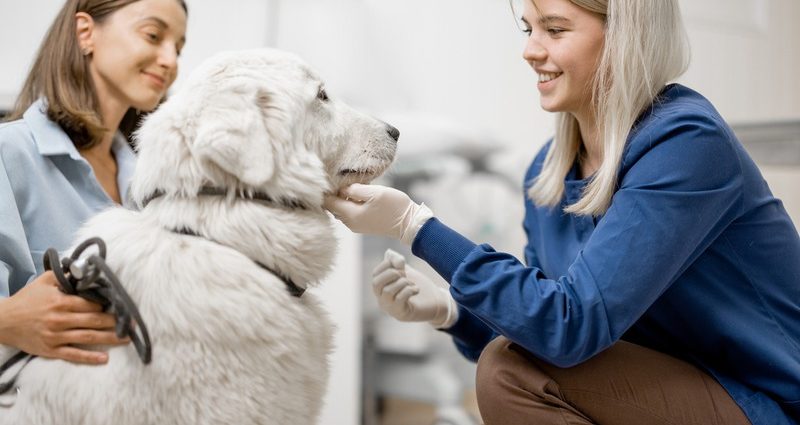Our furry friends can’t tell us when they’re feeling under the weather, especially as we spend more time indoors during quarantine. However, as attentive pet owners, we can watch out for signs that may indicate they need medical attention. Recognizing the symptoms that suggest a visit to an internal medicine vet is crucial for the health of your pet. This article will guide you through the common signs that your pet is in distress and may require internal veterinary care, even during times of social distancing.
Recognizing Signs of Illness in Your Pet
When our pets are sick, our hearts sink. We want to do everything in our power to make them feel better. Internal medical issues can be silent afflictions, often going unnoticed until they become severe. Knowing what to look for can be the difference between catching an illness early and facing a more severe problem down the line.
1. Changes in Eating Habits
A sudden change in your pet’s appetite is one of the first indications that something might be off. If your furry buddy is usually enthusiastic about meals and suddenly turns their nose up or starts eating a lot less, it’s a sign to pay attention. Conversely, an increase in appetite can also be a red flag that shouldn’t be ignored.
2. Vomiting or Diarrhea
Occasional vomiting or diarrhea can happen in pets for various reasons, and it’s not always a cause for alarm. However, if these symptoms persist or are accompanied by other signs like lethargy, it could suggest an underlying internal condition that requires a professional eye.
3. Lethargy or Lack of Energy
If you’re noticing that your pet is not their usual self and seems to be less active or more tired, don’t overlook it. A decrease in energy is a broad symptom that can be associated with many different internal health issues.
4. Difficulty Breathing
Respiratory issues are easily spotted and can be an urgent sign that your pet needs care. If your pet is coughing, wheezing, or seems to have trouble catching their breath, you should consult with a veterinarian promptly.
5. Unusual Bathroom Habits
Changes in urination or defecation habits can indicate an internal problem. Blood in urine, straining to urinate, or changes in stool consistency can all point to various conditions that an internal vet should handle.
6. Noticeable Weight Changes
Weight changes in pets should always be gradual and intentional. If you observe a swift loss or gain in your pet’s weight without an explanation, it could be an indication of a metabolic disorder or other internal issues.
7. Behavioral Changes
Your pet may show changes in their behavior if they’re not feeling well. Increased irritability, aggression, or a sudden fear of being handled can all be clues that it’s time to delve deeper into their health status.
While experiencing one of these symptoms might not immediately mean disaster, a combination or persistence of these signs is a strong indicator that professional intervention is necessary. Remember to keep a watchful eye on your pet and trust your instincts if you feel something seems off.
How to Get Help for Your Pet
During quarantine, it might seem challenging to seek veterinary help, but many clinics are still providing services with modified operations. Let’s look at how to approach getting your pet the care they need.
-
Contact Your Veterinarian: Many clinics are offering telemedicine consultations or curb-side services to assess pets safely without direct human contact.
-
Familiarize Yourself With Clinic Protocols: Due to safety precautions, the way you typically interact with your vet may have changed. Make sure to follow updated guidelines provided by the clinic.
-
Emergency Services: If you suspect your pet is experiencing a medical emergency, seek out emergency veterinary services immediately.
If your pet needs additional medical intervention, such as surgery, reliable information is crucial. Follow this link for further information about vet surgery to explore your options and make informed decisions about your pet’s health care.
When to Seek an Internal Medicine Specialist
Some pets may require the expertise of a veterinarian with advanced training in internal medicine. These specialists handle a range of internal health issues, from hormone disorders to gastrointestinal problems and complex diseases.
If your pet’s condition is persistent, vague, or worsening despite initial treatments, it may be time to see a veterinary internist in Riverbank. They have the expertise to dive deeper into your pet’s symptoms and provide specialized care.
Understanding when to transition from your regular vet to an internal medicine specialist can be tricky. However, if you’re noticing chronic symptoms or your pet has a rare or complicated illness, these vets can offer advanced diagnostics and treatments.
Promoting Long-Term Health
Maintaining your pet’s health involves regular check-ups and preventive care. Among the important preventive measures, dog vaccinations are essential. Vaccinations protect your pup from various diseases and play an integral part in their long-term well-being. Monitoring the schedule and staying up to date with your pet’s vaccines, even during quarantine, is important.
Final Thoughts
Making sense of your pet’s health can be daunting, especially when they can’t tell you what’s wrong. Yet, knowing what symptoms to look out for, understanding how to get them to help, and when to seek specialized care are key steps to ensure their well-being. Always keep an eye on changes in your pet’s behavior or physical condition, and don’t hesitate to reach out to your vet if you have concerns. Our beloved pets rely on us to be their advocates, so staying vigilant and proactive about their health is the best way to keep them thriving by our side, even in uncertain times.

